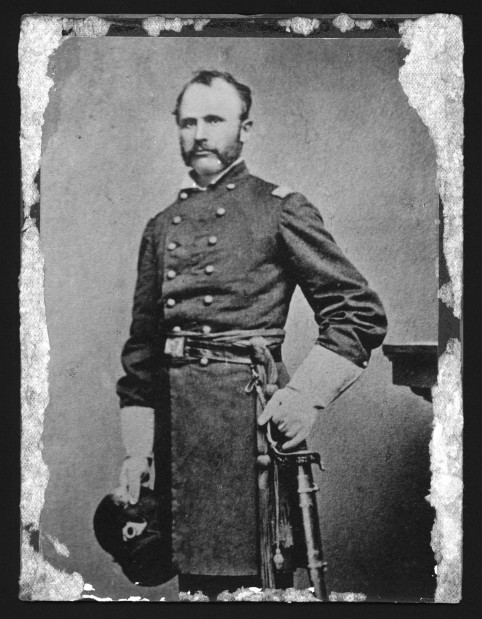Search
Search>> Government>> Politicians>> United States>> Samuel Wylie BlackSamuel Wylie

Born September 3, 1816 - Died June 27, 1862
Samuel Wylie Black is an American politician and soldier.
Black was born on September 3rd, 1816 in Pittsburgh, Pennsylvania. Black's father was a preacher and was considered rather dour. Black himself was known as something of a prankster and troublemaker. In his youth, Black's father warned him the circus was an evil place and was thrashed by his father if he went. After considering this, Black told his father he opted for the thrashing as he was going to go to the circus. In 1834, Black graduated from Western University of Pennsylvania, now called the University of Pittsburgh.
At university, Black became academic rivals and close friends with Thomas Mellon. Both men went into law. Their academic rivalry turned professional when the two men met one day in court, after a heated argument they dissolved their friendship. This lasted until just before the Mexican-American war when Black went to Mellon and told him he was heading off to fight in the war and the two may not see each other again. They resumed their friendship and it lasted until Black's death.
During the Mexican-American war, Black was eager to see combat. He became quite upset when he was ordered to remain with the First Pennsylvania regiment, which he commanded, in Puebla. He attempted to resign from the military, his commanding officer refused his resignation. The day Mexico City fell, Puebla came under siege by a force of 4,000 of Santa Anna's troops. This compared with the 500 soldiers and 1,800 sick and wounded in Puebla. Under constant fire, Black and his men held out 28 days and nearly ran out of food. When Black's commanding officer found out about the siege he sent a relief force to break it. The were ambushed 25 miles away by Santa Anna's army. After the relief force defeated Santa Anna's army they moved on to Puebla where they broke the siege.
In 1852, Black, a Democrat, ran for the United States House of Representatives from Pennsylvania and lost. In 1857, he was appointed as the United States Judge to the Nebraska Territory. In 1859, he was appointed as the Governor of the Nebraska Territory. One notable piece of legislation during Black's time as Governor was the 1860 Act to Prohibit Slavery. Black vetoed the bill and was accused by critics as being pro Southern Democrat. Black claimed he vetoed the bill because he felt it was unconstitutional. The territorial legislature overrode the veto and slavery was outlawed in Nebraska. When Lincoln was elected president, Black resigned as Governor since it was a political appointment and Lincoln was a Republican.
Black returned to Pennsylvania. When the Civil War started he assumed command of the Union Army's 62nd Regiment. At the Battle of Gainses's Mill, Black was killed in action on June 27th, 1862.
Black was a member of St. John's Lodge No. 219, Pittsburgh, Pennsylvania.